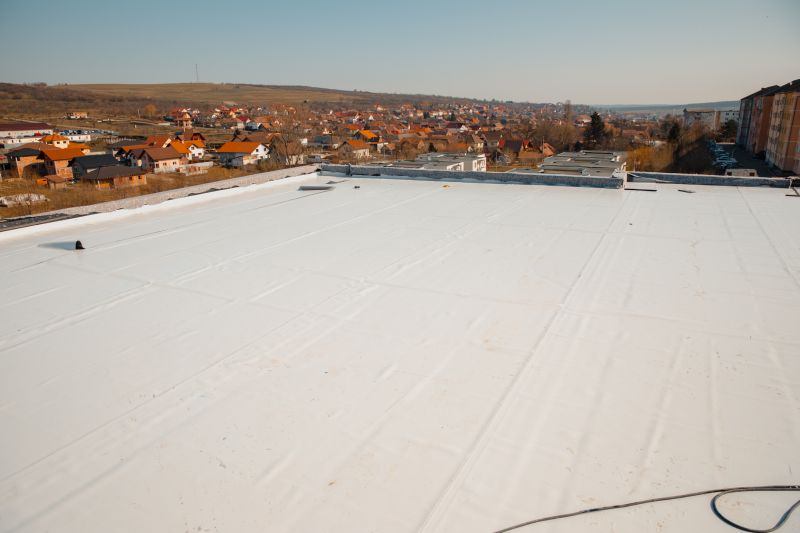Leading Waterproofing Products for Reliable Protection
Discover top waterproofing solutions designed to safeguard your property from moisture and water damage effectively.
 Waterproofing products play a crucial role in protecting structures, foundations, and surfaces from water intrusion and damage. Whether you're working on a home renovation, a construction project, or routine maintenance, selecting the right waterproofing solution is essential for durability and longevity. These products are designed to create a barrier that prevents water from seeping through walls, floors, or roofs, helping to maintain the integrity of the underlying materials.
Waterproofing products play a crucial role in protecting structures, foundations, and surfaces from water intrusion and damage. Whether you're working on a home renovation, a construction project, or routine maintenance, selecting the right waterproofing solution is essential for durability and longevity. These products are designed to create a barrier that prevents water from seeping through walls, floors, or roofs, helping to maintain the integrity of the underlying materials.
Top Overall Option
Comprehensive Waterproofing Membrane System
A versatile waterproofing membrane system that offers seamless, flexible protection suitable for a variety of surfaces including foundations, roofs, and decks. Designed for ease of application and long-lasting performance, it provides a reliable barrier against water infiltration in diverse conditions.
Types of Products For Waterproofings
Liquid Rubber Coatings
Flexible, seamless coatings ideal for irregular surfaces and repairs, providing a durable water barrier.
Bituminous Membranes
Sheet or roll-based membranes commonly used in roofing and foundation waterproofing for their robustness.
Polyurethane Sealants
High-performance sealants suitable for joints, cracks, and gaps to prevent water seepage.
Acrylic Waterproof Paints
Coatings that form a protective layer over surfaces like concrete and masonry, resisting water penetration.
Cementitious Waterproof Coatings
Ready-mixed or dry mix coatings that bond well with concrete and masonry for internal and external use.
Liquid Membranes
Spray or brush-on membranes that create seamless waterproof barriers on various surfaces.
Hydrophobic Sealants
Sealants that repel water on porous surfaces, ideal for brick, stone, and concrete.
Waterproofing Tapes
Self-adhesive tapes used for quick repairs and sealing cracks or joints.
Roof Coatings
Specialized coatings designed to protect roofing surfaces from water and weather elements.
Foundation Sealants
Products formulated to seal and protect basement and foundation walls from water intrusion.
Epoxy Waterproof Coatings
Resilient coatings used in areas requiring chemical resistance and structural reinforcement.
Spray-On Waterproofing
Application of waterproofing solutions via spray for quick and uniform coverage on large surfaces.
Waterproofing Additives
Additives mixed into concrete or mortar to enhance water resistance during construction.
Popular Choices
Widely used for repairs and surface protection, known for flexibility and seamless coverage.
Commonly selected for roofing and foundation projects due to their durability and ease of installation.
Popular for sealing joints and cracks in various construction applications.
Favored for surface coating on exterior walls and decks for water resistance.
Chosen for internal and external waterproofing of concrete structures.
Popular for their seamless application over complex surfaces and penetrations.
Effective for porous stone and brick surfaces to repel water.
Convenient for quick fixes and sealing small areas or cracks.
Selected for protecting flat and sloped roofs from water damage.
Commonly used in basement waterproofing projects for their reliability.
Chosen for areas requiring chemical resistance and structural support.
Preferred for large surface areas requiring uniform coverage and quick application.
Popular for enhancing the water resistance of concrete during construction.
In the realm of waterproofing, a variety of formulations and application methods exist. Liquid coatings, sealants, membranes, and paints are commonly used to address different needs and surfaces. For example, liquid rubber coatings provide flexible, seamless coverage ideal for irregular surfaces, while sheet membranes are often employed in basement or roofing applications for their durability and ease of installation.
Proper surface preparation is critical for optimal results. Clean, dry, and structurally sound surfaces ensure better adhesion and performance of waterproofing products. Additionally, understanding the specific conditions of your project—such as exposure to constant moisture, soil contact, or weather elements—helps in selecting the most appropriate product type. Regular maintenance and inspections can also extend the effectiveness of waterproofing measures over time.
Choosing the right waterproofing product involves considering factors like the type of surface, environmental conditions, ease of application, and longevity. Consulting product specifications and manufacturer guidelines can aid in making an informed decision. Ultimately, investing in quality waterproofing solutions can help protect your property from water-related issues, preserving its value and structural integrity for years to come.
Key Buying Considerations
- Identify the specific surface type and its compatibility with the waterproofing product.
- Assess environmental exposure, such as constant moisture, weather conditions, or soil contact.
- Determine whether a liquid coating, membrane, or sealant best suits your project needs.
- Consider ease of application, including tools required and drying or curing times.
- Evaluate the longevity and durability of the product in your specific conditions.
- Check for compatibility with existing surfaces or coatings to ensure proper adhesion.
- Review manufacturer instructions for surface preparation and application procedures.
- Determine if the product is suitable for internal, external, or both types of waterproofing.
- Account for the size of the area to be covered to select an appropriately sized product.
- Look into maintenance requirements and whether reapplication is necessary over time.
- Consider safety features, such as low VOC content or non-toxic formulations, if relevant.
- Verify the product’s resistance to chemicals, UV rays, and temperature fluctuations if applicable.
- Research customer reviews and expert recommendations for insights into real-world performance.
- Compare costs relative to the expected lifespan and performance of the product.
- Ensure the product complies with local building codes and regulations.
This page contains affiliate links. We may earn a commission if you make a purchase through these links, at no additional cost to you.
